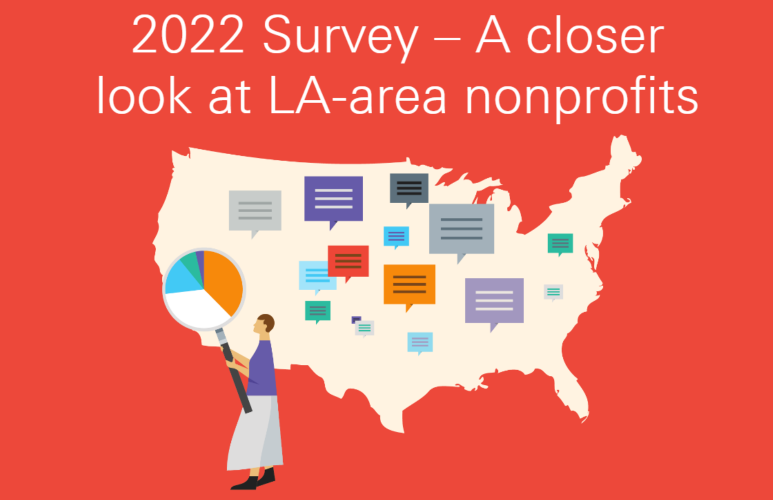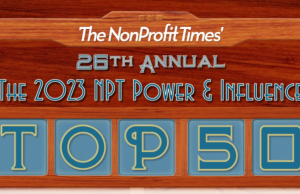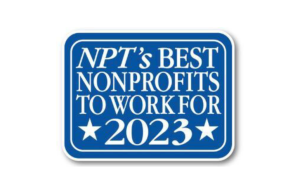Nonprofits headed by Black, Indigenous and people of color (BIPOC) leadership in Los Angeles, Calif., are emerging from the pandemic era on shakier financial footing than white-led nonprofits. While nearly two-thirds (65%) of white-led nonprofits ended their Fiscal Year 2021 with a surplus, only 55% of BIPOC-led ones did, according to a new survey. When Black-led nonprofits were broken out from the sample, fewer than half (45%) reported finishing the year with a surplus.
The picture is direr regarding nonprofits’ cash reserves. Just fewer than six in 10 (59%) of white-led nonprofits reported having reserves, compared with 46% of BIPOC-led nonprofits and 27% of Black-led organizations, according to the “2022 State of The Nonprofit Sector Survey Los Angeles Survey Results,” a new study from the New York City-based Nonprofit Finance Fund (NFF) that is based on surveys of nonprofit leadership.
The study reflects a cooperative effort with the Committee for a Greater LA to support and strengthen nonprofits throughout and after the pandemic. As part of this effort, the Committee established a survey that would allow it to compare Los Angeles-specific nonprofit activity with the greater scope of nonprofit activity, as measured by the NFF’s national “State of the Nonprofit Sector Survey.”
The cash-on-hand picture reflects a nonprofit’s ability to keep its lights on and pay expenses in advance of receiving money from funders. Racial disparity in leadership correlates with a lack of reserves: Overall, 51% of Los Angeles nonprofit leaders reported having at least six months’ worth of cash on hand, while 24% said they had less than two months. But only 19% of the white-led organizations fell within that “less than two months of reserves” category, compared with 28% of BIPOC-led nonprofits.
Part of the reason BIPOC-led organizations are facing greater financial issues this year is due to disparities in Paycheck Protection Program (PPP) loan participation rates. Overall, 63% of Los Angeles-based nonprofits received at least one loan. But that figure reflects 72% of white-led organizations receiving such assistance, compared with 62% of BIPOC-led organizations. Part of the reason BIPOC-led nonprofits lagged in receiving PPP loans might be a lack of engagement with the program. While three-quarters of white-led nonprofits applied for the loans, only 66% of BIPOC-led organizations did so.
No subcategory has a monopoly on financial concerns, however. More than three-quarters (78%) of all respondents said achieving long-term financial sustainability was a major concern, while 69% mentioned raising funds that cover full costs and a similar amount cited the need to raise unrestricted funds as opposed to program-specific funds.
These financial concerns come against a backdrop of increased program and service demand within Los Angeles. Almost nine in ten – 86% report increases in service demand, and two-thirds have expanded programs or services. Nonprofits are adapting in the face of these concerns and the overall changing post-pandemic picture: Most (89%) have developed new or different ways of working, and almost half (49%) believe these changes will be permanent.
There is some question, however, as to whether these changes will be enough to meet the needs of the client community. During the first two years of the coronavirus pandemic, only 48% of Los Angeles-based respondents indicated they were able to keep up with increases in demand. Nearly all (90%) believe their total demand will continue rising in 2022, while just over half (54%) anticipated being able to keep up with that demand during the year.
Attempts to alleviate racial disparities may still be a way off. Asked about diversity, equity and inclusion (DEI) efforts, nonprofit leaders were more likely to report having internal discussions than taking actions. Nearly eight in 10 (79%) reported having board-level discussions about these concerns, while a similar percentage (77%) had staff-level discussions about DEI. But only 57% reported developing policies or practices to improve board diversity, while 54% have developed policies and practices to ensure a diverse pool of applicants would be considered for job openings.
The full report on Los Angeles-based nonprofits is available here: https://nff.org/2022-survey-closer-look-la-area-nonprofits












